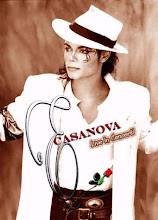Speedy Gonzales
From Wikipedia, the free encyclopedia
| Speedy Gonzales | |
|---|---|
 | |
| Speedy Gonzales, in the Freleng redesign. | |
| First appearance | Cat-Tails for Two (1953) |
| Created by | Robert McKimson (original) Friz Freleng/Hawley Pratt (redesign) |
| Voiced by | Mel Blanc (1953–1989) Joe Alaskey (commercials) Eric Goldberg (Looney Tunes: Back In Action) Bob Bergen (present) |
Speedy Gonzáles (or González), "The Fastest Mouse in all Mexico", is an animated cartoon mouse from the Warner Brothers Looney Tunes and Merrie Melodies series of cartoons. Speedy's major traits are his ability to run extremely fast and his comedic Mexican accent. He usually wears an oversized yellow sombrero, a white shirt and trousers, and a red kerchief.
Contents[hide] |
[edit] History
Speedy debuted in 1953's Cat-Tails for Two, directed by Robert McKimson. This early Speedy was a meaner, skinnier, rattier-looking creation with a sizable gold front tooth. It would be two years before Friz Freleng and animator Hawley Pratt redesigned the character into his modern incarnation for the 1955 Freleng short, Speedy Gonzales. The cartoon features Sylvester the Cat menacing a group of mice while guarding a cheese factory at the Mexican border. The mice call in the plucky, excessively energetic Speedy to save them, and amid cries of "¡Ándale! ¡Ándale! ¡Arriba! ¡Arriba!" (colloquial Mexican Spanish for Come on! Hurry up![1]) courtesy of Mel Blanc, Sylvester soon gets his comeuppance. The cartoon won the 1955 Academy Award for Best Short Subject (Cartoons).
Freleng and McKimson soon set Sylvester up as Speedy's regular nemesis in a series of cartoons, much in the same way Chuck Jones had paired Wile E. Coyote and Road Runner in his Road Runner cartoons. Sylvester (often called "El Gringo Pussygato" by Speedy) is constantly outsmarted and outrun by the mouse, causing the cat to suffer all manner of pain and humiliation from mousetraps to accidentally consuming large amounts of hot sauce. Other cartoons pair the mouse with his cousin, Slowpoke Rodriguez, the "slowest mouse in all Mexico." Slowpoke regularly gets into all sorts of trouble that often require Speedy to save him. In the mid 1960s, Speedy's main nemesis became Daffy Duck.
[edit] Controversy
Speedy's cartoons have come under fire in recent years for their alleged stereotypical depictions of Mexicans and Mexican life.[2] Mice in the shorts are usually shown as lazy and hard-drinking, with Speedy the only exception.
In Gonzales' Tamales, the town mice instigate a feud between Speedy and Sylvester the Cat because Speedy has been stealing the hearts of all the females. Much of the dialogue between Mexican characters is in English and the small amount of Spanish that peppers the dialogue consists of basic greetings, goodbyes, exclamations, and misplaced references to popular Mexican foods. This criticism prompted Cartoon Network to largely shelve Speedy's films when it gained exclusive rights to broadcast them in 1999. However, fan campaigns to put Speedy back on the air and lobbying by The League of United Latin American Citizens saw the shorts return to air from 2002.[3] Speedy Gonzales remains a popular character in Latin America despite the controversy.[2]
[edit] Other appearances
In 1988, he made a cameo appearance in the ending scene of Who Framed Roger Rabbit. In 1996, he made a short appearance in film Space Jam. In 2003, he made a cameo appearance alongside Porky Pig in the film Looney Tunes: Back in Action, making fun of his politically incorrect status. At around the same time, he made a non-speaking cameo in an episode of ¡Mucha Lucha! titled "Lucha, Rinse and Repeat". Volume 4 of the Looney Tunes Golden Collection DVD series, released on November 14, 2006, has an entire disc of Speedy shorts, although some shorts had previously been released on Volumes 1 and 3.
In 1962, pop singer Pat Boone scored a top 10 hit in the United States with the song "Speedy Gonzales" which featured Mel Blanc spouting faux-Mexican phrases as Speedy. It was also sung by Manolo Muñoz and A.B. Quintanilla's Kumbia All Starz, whose music video featured Speedy.
In 2006, Volkswagen licensed Speedy Gonzales for a series of Spanish-language commercials for the Volkswagen Golf.[4]
[edit] See also
[edit] References
- ^ "Spanish Word of the Day Archive". Collins. July 25, 2007. http://dictionary2.classic.reference.com/wordoftheday/es/archive/2007/07/25.html. Retrieved July 7, 2009.
- ^ a b Park, Michael Y. (March 28, 2002). "Speedy Gonzales Caged by Cartoon Network". FoxNews.com. http://www.foxnews.com/story/0,2933,48872,00.html. Retrieved July 7, 2009.
- ^ Park, Michael Y. (June 21, 2002). "Speedy Reaches the Finish Line". FoxNews.com. http://www.foxnews.com/story/0,2933,55675,00.html. Retrieved July 7, 2009.
- ^ "Arriba! VW Turns to Speedy Gonzales To Push GTI". Indiacar.net. March 20, 2006. http://www.indiacar.net/news/n26151.htm. Retrieved July 7, 2009.
[edit] Further reading
- Nericcio, William Anthony (2006). Tex[t]-Mex: Seductive Hallucinations of the "Mexican" in America. University of Texas Press.
- Schneider, Steve (1990). That's All Folks!: The Art of Warner Bros. Animation. Henry Holt & Co.
- Solomon, Charles (1994). The History of Animation: Enchanted Drawings. Random House Value Publishing.
[edit] External links
- The Tex(t)-Mex Galleryblog an archive for the second edition of the University of Texas Press (2007) book on stereotypes.


No comments:
Post a Comment